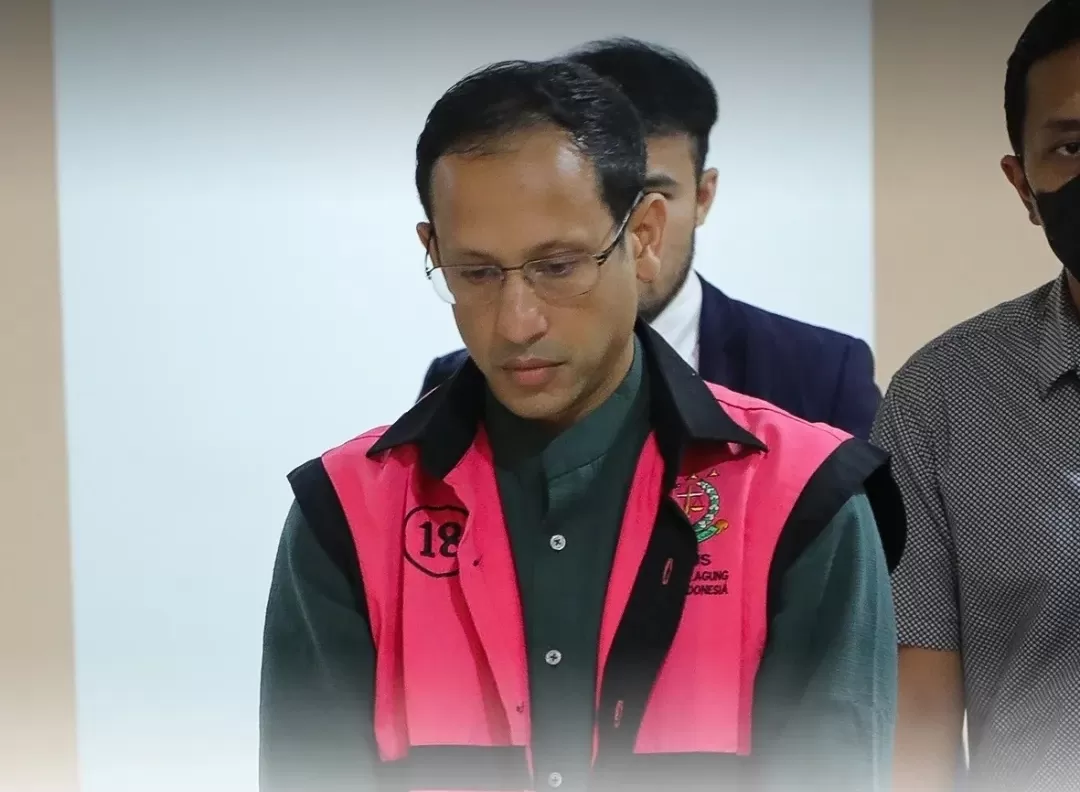Twhirl.com – The political and business landscape of Indonesia was rattled on Thursday, September 4, 2025, when the Attorney General’s Office (AGO) formally named Nadiem Anwar Makarim, the former Minister of Education, Culture, Research, and Technology and co-founder of the tech giant Gojek, as a suspect in a major corruption case. The charges relate to the procurement of Chromebook laptops for schools, a program meant to advance digital education across the archipelago. This multi-trillion rupiah scandal, with estimated state losses reaching trillion (approximately million), has placed one of Indonesia’s most recognizable figures under intense legal scrutiny and detention. Makarim, who was appointed as minister in 2019, is accused of misusing his authority to enrich himself or a corporation through the flawed procurement process, which spanned from 2019 to 2023. The development marks a dramatic fall from grace for the former tech visionary who was once lauded as a symbol of Indonesia’s modern, dynamic economy. His detention for 20 days at the AGO facility, before being moved to Salemba Detention Centre, signals the seriousness with which the authorities are pursuing the case. The investigation is far-reaching, encompassing not only ministry officials but also corporate figures, underscoring a complex web of alleged illicit dealings.
Deep Dive into the Alleged Corruption Scheme
The core of the corruption allegations revolves around the massive procurement of Chromebook laptops, a key initiative under Makarim’s tenure to digitalize Indonesia’s education system. The total value of the contracts under investigation is staggering, originally reported to be around trillion. Prosecutors allege that the procurement process was compromised from the outset, with evidence suggesting the program was potentially engineered to favor specific vendors and technologies. One key area of investigation focuses on the suitability of the Chromebooks themselves. Authorities noted that the devices require a stable internet connection to function optimally, rendering them largely ineffective in many remote and underdeveloped regions of Indonesia—areas the program was specifically intended to benefit. This raises questions about the due diligence and decision-making process behind selecting the technology. Furthermore, the AGO has pointed to massive overpricing or “mark-ups” in the contracts. For instance, the alleged state loss calculation includes a significant amount related to the mandatory “Chrome Device Management” software and an inflated price for the laptops themselves. This suggests a classic corruption model involving bid-rigging and inflated pricing to generate illicit profits for favored parties, causing substantial financial harm to the state budget.
The Role of Corporate Ties and Google’s Investment
Adding another layer of complexity and public interest to the case are Makarim’s deep ties to the tech world, specifically his role as the co-founder of Gojek, which merged with Tokopedia to form GoTo. The prosecution has been investigating a potential link between the selection of Chromebooks—a Google product—and a significant investment made by Google’s parent company, Alphabet, into Gojek (now GoTo) in the years surrounding the start of the procurement. Prosecutors are probing whether Makarim, by choosing Chromebooks, essentially steered a massive government contract toward a technology aligned with one of his former company’s major investors. While Makarim’s lawyer maintains that any meetings with Google Indonesia were routine and that the laptops were sold by Indonesian vendors (with Google only providing the operating system), the allegations of a conflict of interest are potent. The investigation has already seen searches conducted at GoTo offices and the summoning of high-profile witnesses from GoTo, Tokopedia, and Google Indonesia. Makarim’s denial of involvement, where he publicly asserted his lifelong commitment to integrity, stands in stark contrast to the serious allegations of using his ministerial power for personal or corporate gain.
Legal Battle and Defense Strategy Underway
Following his designation as a suspect and subsequent detention, Nadiem Makarim and his legal team immediately initiated a fight against the charges by filing a pre-trial motion (known as praperadilan). This legal maneuver challenges the legality of the suspect designation and the detention procedures. Makarim’s high-profile lawyer, Hotman Paris Hutapea, has been vocal in the defense, describing the case as “the strangest” of his career. The defense’s main argument hinges on two critical points: first, that the suspect designation was made without the required two pieces of sufficient evidence; and second, that there is no verifiable state loss. Hutapea has repeatedly cited audits from the Supreme Audit Agency (BPK) and the Financial and Development Supervisory Agency (BPKP) that allegedly found the price of the Chromebooks to be normal and the distribution satisfactory across numerous provinces. The defense contends that the prosecution’s calculation of state loss, which focuses on the alleged “mark-up,” is without merit. The verdict on the pre-trial motion, set to be announced on Monday, October 13, 2025, is a crucial juncture that will determine whether the case proceeds to a full corruption trial or if Makarim’s suspect status will be invalidated. Regardless of the outcome of the pre-trial hearing, this case has irrevocably damaged Makarim’s reputation and has highlighted the ongoing challenges of battling high-level corruption in Indonesia.



